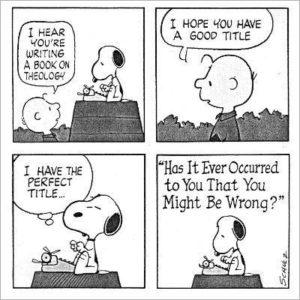Continuing education
Among the many things for which I’m grateful these days is the chance to roam around the church (courtesy of American Airlines) and learn. Learning is what disciples are supposed to do, I think. I’m learning that learning never stops.
I had the chance to learn from Stephen Cottrell, Bishop of Chelmsford, England, who preached at the National Cathedral last Thursday night. With impeccable timing of finest comedians (Colbert, Stewart, Fallon watch out!), he spoke about evangelism. He highlighted something I’d never noticed, which is that at the heart of the word “evangelism” (a word which makes many Episcopalians nervous) is the word “angel”. The word “angel” really means messenger.
He shared stories of evangelism, times when he was a messenger, including a moment sharing his faith while ordering coffee. His clerical collar gave him away as he waited in line. Another caffeine-deprived consumer asked about his vocation. After she had done some quizzing about what had caused him to become a priest, she offered her own take on church people. From her point of view (i.e., millennial outside the church), they could be divided into two groups:
The first kind of Christian, she observed, treated Christianity like a hobby, like gardening or bridge or macramé. Nothing wrong with it, but nothing transformational, either. Nothing that seemed to make a huge difference in life. “Why bother?” might be an appropriate response.
The second kind of Christian holds faith so tightly that it scares off anyone nearby. It’s that vociferous, occasionally angry, annoying, self-righteous embrace of faith. I suspect you know what I’m talking about. If you don’t, you are blessed. To my mind, if that’s the good news (which is what “evangel” really means), I’d hate to hear the bad news. I have a friend who said she’d start jogging when people who were jogging looked like they were having fun. Perhaps the same could be true of religious folks, who often specialize in being more miserable than thou.
In response to his coffee companion, this winning bishop posited a third way (thanks be to God). He described it as the way of Jesus, the way of justice, peace, and joy. Standing in line, waiting for his latte, he told this young woman about a way that breaks down barriers, and tears down walls in a world that seems bent on building them. He spoke of a way that brings a sense of the abundance of life that Jesus showed and shared.
And he gave this young woman this piece of advice: Go to your local church and find out what it is to be fully human. Go and find out what it means to live life as God intended life to be, life shown to us in Jesus Christ. Does your church help you do that? Can you help your church help to do that?
It was a moment of evangelism. Maybe the bishop was the angel, the messenger. Maybe she was. It doesn’t really matter, because good news was shared. It began with the bishop listening to this woman he just met, valuing her insights, honoring the truth she knew, learning from her. That listening is key to evangelism.
He moved then with courage to proclaim that the gospel is good news, that it can help us become all that God intends. He presented the gospel as news that God’s greatest joy is to help us realize our original blessing. Too often church fails to do that. But in my travels, I’m learning that it can happen. That’s been a great lesson.
Today is February 27. The day is a gift. How will you be an evangelist, a listener, a proclaimer of good news, a messenger, an angel? And how would you like your coffee?
-Jay Sidebotham
The glory of God is the human person fully alive.-St. Irenaeus
I came that they may have life and have it abundantly.-Jesus (John 10:10)
An oldie but a goodie:I love to tell the story of unseen things above, of Jesus and His glory, of Jesus and His love; I love to tell the story, because I know ’tis true. It satisfies my longings as nothing else would do.Refrain:I love to tell the story,‘Twill be my theme in glory, to tell the old, old story of Jesus and His love.I love to tell the story, more wonderful it seems than all the golden fancies of all our golden dreams;I love to tell the story, it did so much for me,And that is just the reason I tell it now to thee.I love to tell the story, for those who know it best seem hungering and thirsting to hear it like the rest; And when in scenes of glory I sing the new, new song, ’twill be the old, old story that I have loved so long.“I Love to Tell the Story,” Words: A. Katherine Hankey (1831-1911)
 Contact:
Contact:
Rev. Jay Sidebotham
jsidebotham@renewalworks.org
RenewalWorks is a ministry of Forward Movement.
www.renewalworks.org
If you’d like to join in this donor-based ministry, donate here.


